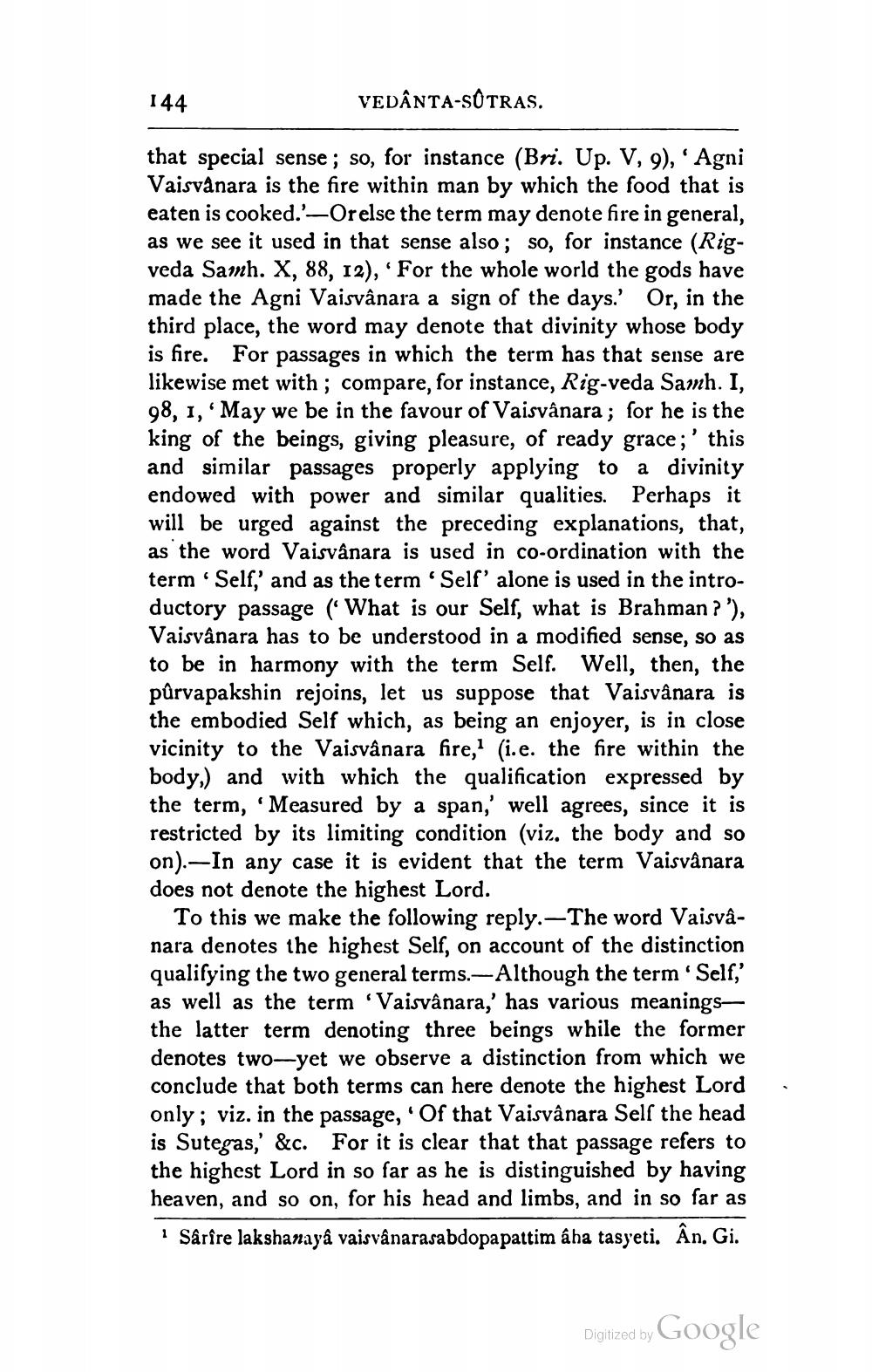________________
144
VEDÂNTA-SÜTRAS.
that special sense ; so, for instance (Bri. Up. V, 9), 'Agni Vaisvanara is the fire within man by which the food that is eaten is cooked.'—Orelse the term may denote fire in general, as we see it used in that sense also; so, for instance (Rigveda Samh. X, 88, 12), 'For the whole world the gods have made the Agni Vaisvânara a sign of the days.' Or, in the third place, the word may denote that divinity whose body is fire. For passages in which the term has that sense are likewise met with ; compare, for instance, Rig-veda Samh. I,
Vaisvânara; for he is the king of the beings, giving pleasure, of ready grace;' this and similar passages properly applying to a divinity endowed with power and similar qualities. Perhaps it will be urged against the preceding explanations, that, as the word Vaisvânara is used in co-ordination with the term 'Self,' and as the term 'Self' alone is used in the introductory passage ("What is our Self, what is Brahman ? '), Vaisvânara has to be understood in a modified sense, so as to be in harmony with the term Self. Well, then, the pûrvapakshin rejoins, let us suppose that Vaisvânara is the embodied Self which, as being an enjoyer, is in close vicinity to the Vaisvânara fire, (i.e. the fire within the body,) and with which the qualification expressed by the term, Measured by a span,' well agrees, since it is restricted by its limiting condition (viz, the body and so on).-In any case it is evident that the term Vaisvanara does not denote the highest Lord.
To this we make the following reply.—The word Vaisvânara denotes the highest Self, on account of the distinction qualifying the two general terms.-Although the term 'Self,' as well as the term 'Vaisvânara,' has various meaningsthe latter term denoting three beings while the former denotes two-yet we observe a distinction from which we conclude that both terms can here denote the highest Lord only; viz. in the passage, 'Of that Vaisvânara Self the head is Sutegas,' &c. For it is clear that that passage refers to the highest Lord in so far as he is distinguished by having heaven, and so on, for his head and limbs, and in so far as
Sârîre lakshanayâ vaisvânarasabdopapattim aha tasyeti. Ân. Gi.
Digized by Google




